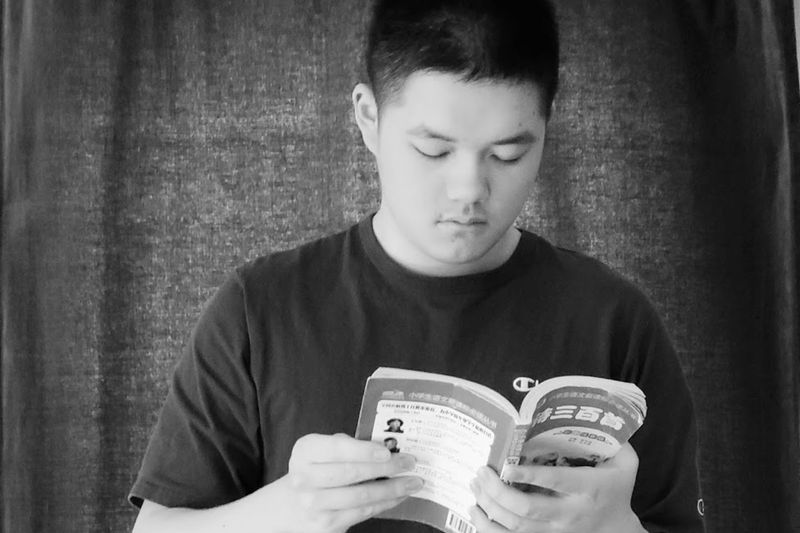We Are America
Abandonment
By Justin

North Quincy High School, Massachusetts
There was a time in life where things were much easier, and for me, that was when I was a child. I was born in the US, but at five months' age, I was sent to China to be raised by my grandparents. This was common among the immigrants my parents knew because this would alleviate the stress of childcare while the adults can focus on working. Growing up surrounded by Mandarin speakers constantly, it unsurprisingly became my first language. I lived a carefree life for about a year until I moved back to the US to continue living with my parents.
When I arrived, it took me a few days to adapt to the changes, but the adjustments were swift. There was little difference between living in the US and China since all I did play all day, but that changed after a few years. Eventually, after my fifth birthday, I was told of something called school, and the thought of it scared me, and I was right to think so. The first day of school was terrible. I had no clue what was happening because I knew the bare minimum of English. The teachers and staff were all very nice, but trying to understand what was going to happen was difficult, especially for a five-year-old, and being a kid that never experienced loneliness in his life, I felt like I was isolated from the rest of the world. I wanted to learn English quickly so I could understand everything and be part of what was happening. I was motivated to change so I spoke English, though with a small vocabulary, whenever I could to improve it, and eventually, I made some progress. I could understand the skeleton of what was being said. This lifestyle kept up for years and my English was getting much better, but my Mandarin was lagging behind, as I was denying the use of it. Then came the summer before my fifth-grade year.
My family was traveling to China to see my grandparents again, as it had been many years since they have seen them. When we arrived at their hometown of Fujian, Fuzhou, we were greeted with great excitement, but there was a problem we noticed instantly— my dreadful Mandarin. I did not think much of my lack of conversation with family, but that was not what my parents thought. A few days after we came back to the US, I sat down with both my parents, who both had a stern look. To summarize, their speech, was separated into three main points: how I am going to communicate with my grandparents? How important it is to keep my Chinese traditions. And how important a second language is for my future, like job finding. There were many things that I took away from this conversation and of the many, the one that stays with me to this day, though not directly said but inferred by me, was how everything they did was for me, and no one else. My mother had said to me: “English is very important, yes, we both understand very well what you’re going through, but being Chinese is who you are and will always be.”
From this, I realized I was not the only one struggling; my parents were much more stressed than I, and with this struggle, they still put so much love into making me the best I can be. Instead of blaming myself, I decided to not let their efforts go to waste and immediately began studying Mandarin. I did so by speaking Mandarin at home and English in school and I would attempt to learn via resources online. Overall, the most important thing that helped me was my parent’s willingness to help me, by reading books we have around the house and constantly answering my questions, which I had a lot of! After months of this, I excelled in both languages, and I realized how flawed it was to speak only one language. Not only that, I realized how much this conversation impacted me, how much I changed then, and the many times I would look back at it and be determined to keep working harder because only that way can the hard work my parents put into me be not wasted.
© Justin. All rights reserved. If you are interested in quoting this story, contact the national team and we can put you in touch with the author’s teacher.